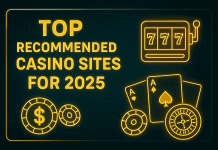Bitcoin, often hailed as the pioneer of cryptocurrencies, emerged in 2009 through the enigmatic figure known as Satoshi Nakamoto. Operating independently of traditional financial systems and governmental oversight, Bitcoin Currency offers an alternative means of exchange and investment through its decentralized peer-to-peer network. In this article, HTC News will answer one of the most asked crypto currencies in the market: what is Bitcoin? Let’s find out.

What is Bitcoin?
Before we go deeper into the technical aspects of Bitcoin Currency, let’s take time to know the basic meaning of what this digital currency means.
So, What is Bitcoin? In a sense, bitcoin is a decentralized digital currency that operates on a peer-to-peer network, enabling secure and borderless transactions without the need for intermediaries like banks or governments. It was introduced in 2009 by an unknown person or group of people using the pseudonym Satoshi Nakamoto, who published a whitepaper outlining its principles and mechanisms.
At its core, Bitcoin is built on a revolutionary technology called blockchain, which serves as a public ledger that records all transactions. Each transaction is verified by network participants known as miners, who use powerful computers to solve complex mathematical puzzles. Once verified, transactions are grouped into blocks and added to the blockchain in chronological order, creating a transparent and immutable record of all Bitcoin transactions.
Everything You need to Know About Bitcoin
Here are some of the things that you should know in order to become familiar with Bitcoin.
Security: The Bitcoin Blockchain
Central to Bitcoin’s functionality is its blockchain, a distributed ledger system that records and secures all transactions. Each transaction is stored in blocks, which are linked together in a chronological chain. This structure ensures transparency, immutability, and resistance to tampering.
Mining: The Backbone of Bitcoin
Bitcoin mining, the process of validating transactions and creating new blocks, is carried out by specialized software applications or hardware known as Application Specific Integrated Circuits (ASICs). Miners compete to solve complex cryptographic puzzles, with successful miners rewarded with newly minted bitcoins.
Halving: A Fundamental Event
Approximately every four years, Bitcoin undergoes a halving event, where the mining reward is halved. This scarcity mechanism is built into the protocol to control inflation and ensure a finite supply of bitcoins, with the ultimate cap set at 21 million coins.
Bitcoin Keys and Wallets: Your Digital Heaven
Bitcoin ownership is facilitated through cryptographic keys stored in digital wallets. Public keys identify recipients, while private keys grant access to funds. Wallets come in custodial and non-custodial forms, each offering varying levels of control and security.
Bitcoin Transactions: From Sender to Receiver
Transactions on the Bitcoin network involve the transfer of ownership from one address to another. These transactions are validated and added to the blockchain through a process that involves transaction fees and confirmation by miners.
Bitcoin Security: Safeguarding Your Assets
While the Bitcoin blockchain itself has never been compromised, securing one’s private keys is crucial to preventing unauthorized access and potential loss of funds. Cold storage methods, such as offline storage, offer enhanced security against cyber threats.
Risk and Rewards of Investing in Bitcoin
Bitcoin’s volatile nature presents both opportunities and risks for investors. While some view it as a long-term store of value or hedge against inflation, others engage in speculative trading to capitalize on price fluctuations.
Converting Bitcoin into Cash
Bitcoin’s convertibility into fiat currency allows users to realize its market value through various cryptocurrency exchanges. These platforms facilitate the buying, selling, and trading of bitcoins for traditional currencies.
Bitcoin: Real or Not?
Bitcoin meets many criteria of traditional money, serving as a medium of exchange, store of value, and unit of account. Its widespread acceptance for goods and services further solidifies its status as a form of currency.
Investing in Bitcoin: Considerations and Cautions
While investing in Bitcoin is possible and becoming increasingly popular, it’s essential to understand the inherent risks, volatility, and lack of regulatory oversight associated with the cryptocurrency market.
Factors in Choosing the Best Bitcoin Platform
With the growing popularity of Bitcoin, numerous platforms have emerged to facilitate buying, selling, trading, and storing bitcoins. Selecting the right platform is crucial for ensuring a smooth and secure experience. Here are key factors to consider when choosing the best Bitcoin platform:
Security
Security should be a top priority when selecting a Bitcoin platform. Look for platforms that employ robust security measures, such as two-factor authentication (2FA), cold storage for funds, and encryption protocols to protect user data.
User Experience
A user-friendly interface and intuitive design can make navigating a Bitcoin platform much easier, especially for beginners. Look for platforms with clean, easy-to-use interfaces and comprehensive educational resources to help users understand the ins and outs of Bitcoin.
Fees
Bitcoin platforms typically charge fees for transactions, trading, and other services. Compare fee structures across different platforms to ensure you’re getting competitive rates. Keep an eye out for hidden fees or additional charges that may impact your overall experience.
Liquidity
Liquidity refers to the ease with which assets can be bought or sold on a platform without significantly impacting their price. Choose a platform with high liquidity to ensure swift execution of trades and competitive pricing.
Regulation and Compliance
Depending on your location, it may be essential to choose a platform that complies with relevant regulations and holds necessary licenses or certifications. Platforms that adhere to regulatory standards tend to offer greater transparency and accountability.
Customer Support
Reliable customer support can be invaluable when encountering issues or needing assistance on a Bitcoin platform. Look for platforms with responsive customer support channels, including live chat, email, and phone support, to address any concerns promptly.
Additional Features
Consider what additional features or services are offered by the platform, such as margin trading, staking, or lending. These features can add value and functionality for users with specific investment goals or preferences.
Best Bitcoin Platforms in 2024
Coinbase
Known for its user-friendly interface and strong security features, Coinbase is a popular choice for beginners and experienced traders alike. It offers a variety of services, including a cryptocurrency exchange, wallet, and trading platform.
Binance
Binance is one of the largest cryptocurrency exchanges globally, offering a wide range of trading pairs and advanced trading features. It also provides additional services such as staking, futures trading, and a decentralized exchange (DEX).
Kraken
Kraken is a well-known and famous cryptocurrency exchange because of its robust security measures and high liquidity. It offers a variety of trading options, including spot trading, margin trading, and futures contracts, as well as a suite of advanced trading tools.
Ultimately, the best Bitcoin platform for you will depend on your individual needs, preferences, and level of experience. Take the time to research and compare different platforms to find the one that best aligns with your goals and requirements.
Conclusion
Bitcoin Currency continues to redefine the landscape of finance, offering individuals unprecedented control over their financial assets. Whether viewed as a disruptive force or a groundbreaking innovation, Bitcoin’s influence extends far beyond the realms of digital currency, shaping the future of global finance.
Frequently Asked Questions (FAQ) about Bitcoin
What is Bitcoin?
Bitcoin is a digital currency created in 2009 by an unknown person or group of people using the pseudonym Satoshi Nakamoto. It operates on a decentralized network called blockchain, enabling peer-to-peer transactions without the need for intermediaries like banks or governments.
How does Bitcoin work?
Every Bitcoin currency transaction is recorded on a public ledger known as the blockchain. Participants in the network use cryptographic keys to send and receive bitcoins securely. Miners of Bitcoin verifies each transaction and add them to blocks, which are then linked together to form the blockchain.
Is Bitcoin legal?
The legal standing of Bitcoin differs from country to country. While some nations have embraced it as a legitimate form of payment, others have imposed restrictions or outright bans on its use. It’s essential to check your local regulations before engaging in Bitcoin-related activities.
How do I buy Bitcoin?
Bitcoin can be purchased on cryptocurrency exchanges using fiat currency or other cryptocurrencies. Popular exchanges include Coinbase, Binance, and Kraken. Users can also buy Bitcoin through peer-to-peer platforms or Bitcoin ATMs.
What is Bitcoin mining?
Bitcoin mining is the process of verifying transactions and adding them to the blockchain. Miners use high-powered computers to solve difficult mathematical puzzles, with successful miners rewarded with newly minted bitcoins. Mining also plays a pivotal part in securing the network.
Can I lose money with Bitcoin?
Yes, investing in Bitcoin carries inherent risks, including price volatility, regulatory uncertainty, and security vulnerabilities. While some investors have profited from Bitcoin’s price appreciation, others have experienced significant losses. It’s necessary to conduct in-depth research and only invest what you can afford to lose.
Can Bitcoin be hacked?
While the Bitcoin blockchain itself has never been hacked, individual wallets and exchanges can be vulnerable to cyberattacks. Secure storage practices, such as using hardware wallets or cold storage methods, can help mitigate the risk of theft or hacking.
What is a Bitcoin wallet?
A Bitcoin wallet is a digital instrument used to store, send, and receive Bitcoin. It consists of a pair of cryptographic keys: a public key, which serves as an address for receiving bitcoins, and a private key, which is used to access and spend bitcoins.
Is Bitcoin anonymous?
While Bitcoin transactions are pseudonymous, meaning they are not directly tied to a person’s identity, they are recorded on a public ledger that can be analyzed. With the right tools and techniques, it may be possible to trace Bitcoin transactions back to their originators.
Where can I learn more about Bitcoin?
There are numerous online resources available for learning about Bitcoin, including educational websites, forums, and community-driven platforms. Additionally, books, podcasts, and documentaries offer valuable insights into the history, technology, and economics of Bitcoin.
read more: Investment Blogs




















